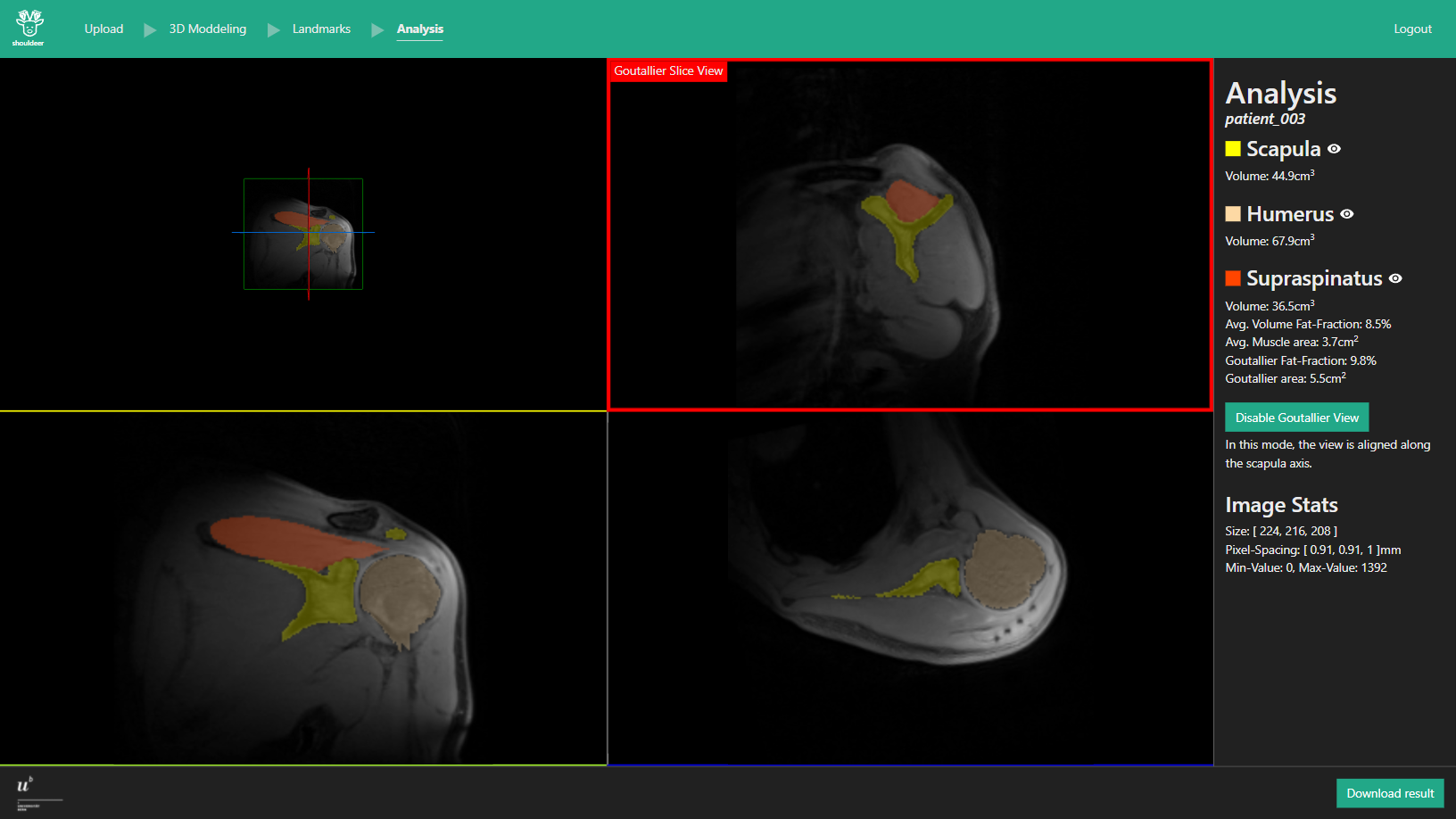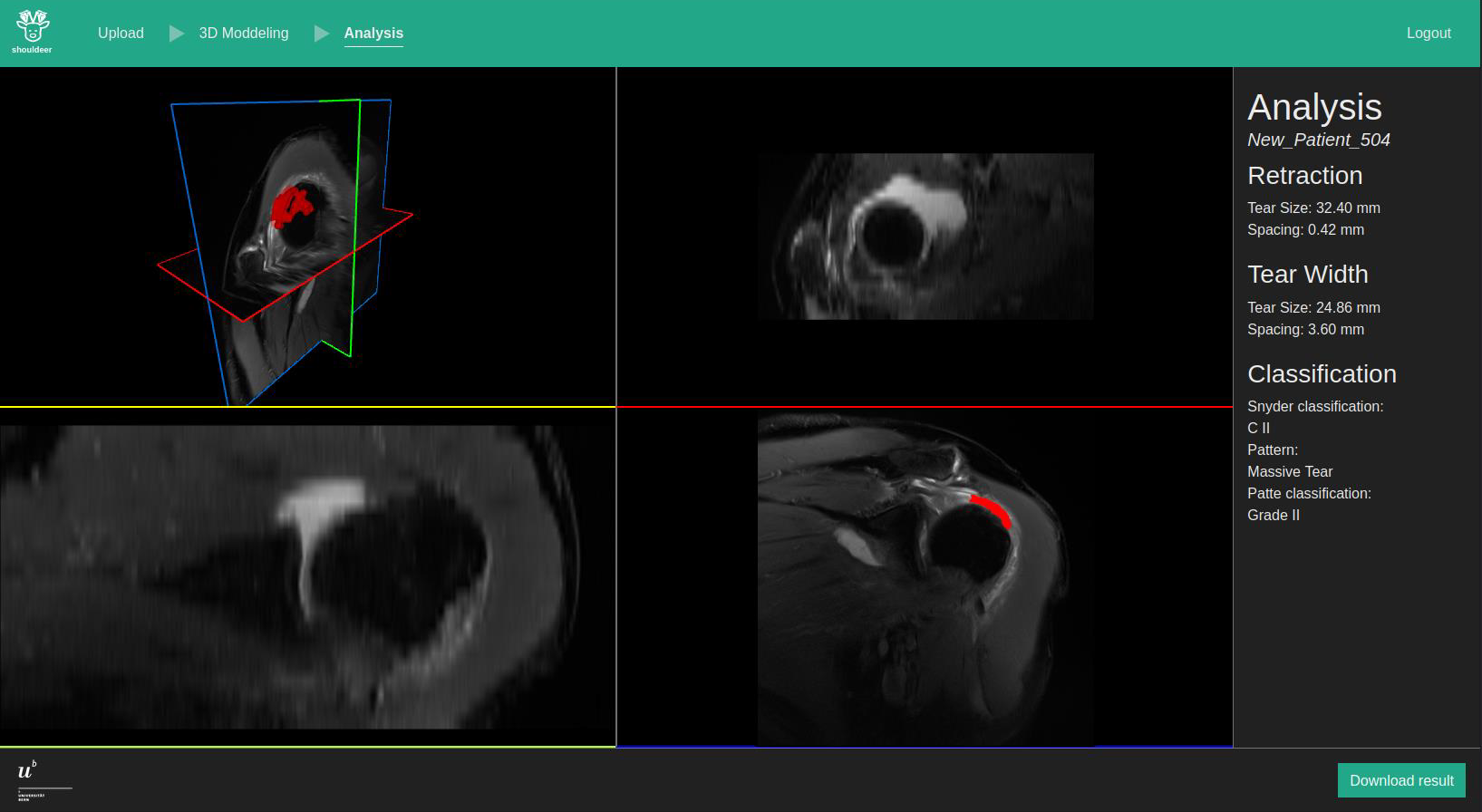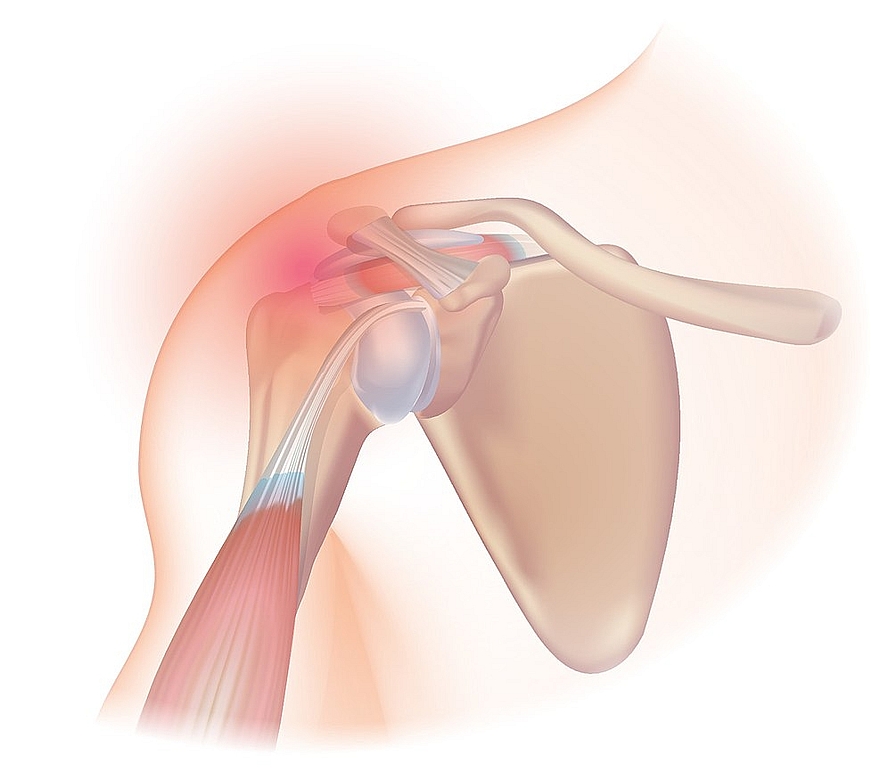Rotator Cuff Repair
The research and development of image based computer assistive technology for rotator cuff tear diagnosis, surgical repair planning and repair outcome prediction. The technology aims to increase the applicability of surgical repair by reducing the incidence of repair failure.
Computer assisted diagnosis, treatment decision support, and surgical planning for rotator cuff repair
Stability of the shoulder joint is mainly provided by four rotator cuff muscles. If some of these muscles are torn, arthroscopic rotator cuff repair (ARCR) surgeries have been related to significant short- and long-term improvements in pain score, function, and strength, providing a less invasive alternative to complete shoulder arthroplasty. The Personalised Medicine research group focuses on aiding clinicians with suitable diagnosis, treatment decision support and surgical planning for rotator cuff repair. To this end, software tools are currently being researched, developed and clinically evaluated.
Various anatomical shoulder parameters, such as fatty infiltration of the torn muscle, can impair the success rate of ARCR surgeries. We, thus, propose a fully automated end-to-end pipeline to allow quantitative fat fraction analysis on 2-point Dixon MRI data, which includes data alignment and Y-view slice detection for result validation.

Other important factors than muscle quality are tear thickness (partial vs. full), tear size, and tear shape. We are also evaluating deep learning approaches for the fully automatic quantification and classification of full-thickness posterosuperior rotator cuff tear from MR images.

Partners
University Hospital of Bern, Inselspital:
- Prof. Dr. med. Matthias Zumstein
- Prof. Dr. med. Hendrik von Tengg-Kobligk
- Dr. med. Michael Schär
- Dr. med. Keivan Daneshvar
- Dr. med. Olivier Scheidegger
- Dr. med. Lukas Dommer
- PD Dr. med. Bernd Jung
- Dr. med. Florian Schmaranzer
- Dr. med. J Tomás Rojas
- Annabel Hayoz
ETH Zürich:
- Prof. Stephen Ferguson
- Dr. Enrico De Pieri
Depuy Synthes:
- Beat Lechmann
Depuy Mitek:
- Don Barry
- Dave Spenciner

